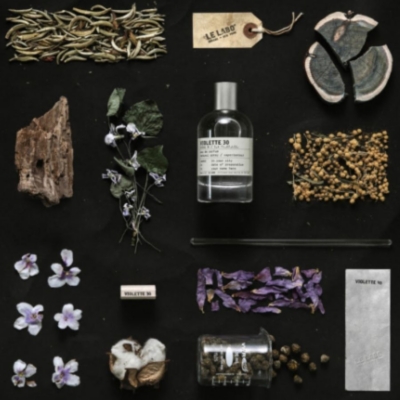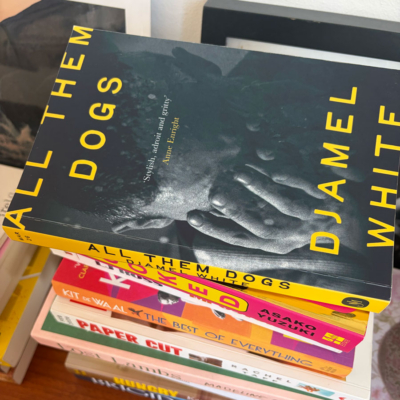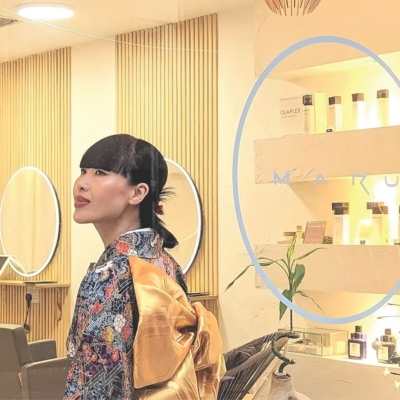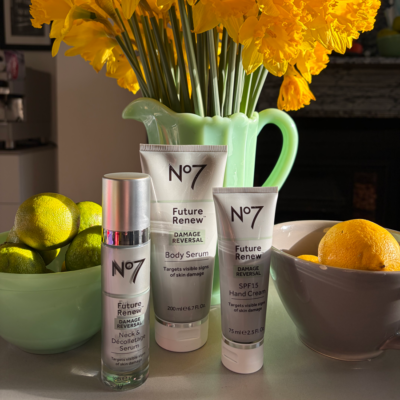Retinol, the skin boosting all-rounder, has gone mass-market – but you still need to know what’s what. Here’s what you need to know about using retinol and bringing your skin’s A game …
When it comes to ingredients in skincare, experts are unanimous that one thing really does work in terms of improving tone and texture. Retinol has long been regarded as the gold standard for softening lines and wrinkles, evening skin tone and improving firmness and texture (we’ll avoid the hideous term anti-ageing).
Phew. No wonder every other product arriving onto the beauty desk touts its retinol credentials (along with how green, vegan and recyclable it is). But retinol has its challenges, and many of us remain nervous of it. Who wants to irritate their skin, or cause flaking? When I met up with No7 Skincare Scientific Advisor, Dr Mike Bell, back in February (when we could actually sit and have coffee and talk about skincare, mask-free), I admitted that I was wary, despite being old enough to know better. “People have a different response to retinols,” Dr Bell says. “It’s the balance between tolerance and efficacy that’s really key – you want it to work, without irritating the skin – and not all retinol products are equal.”

So why use retinol?
Retinol is a proven all-rounder, working on the epidermal, or top layer, of the skin, encouraging cell turnover and optimal skin renewal. Deeper down in the skin, a loss of fibrulin springs and collagen cause a loss of firmness and hence lines and wrinkles as you get older, and skin renewal slows down. You need fibrulin springs for bounce, and collagen for skin firmness and strength. Retinol is a form of vitamin A, important in wound healing and the natural turnover and renewal of skin. It’s stored in the skin as well as in the liver, so by using retinol, we’re not giving something to the skin that it hasn’t seen before. Our skin cells have a retinol receptor, and we know it can reprogramme cells and turn things on, such as new collagen synthesis. While retinoic acid is a drug available by prescription only, retinol is the most effective over the counter form. “What’s different about retinol is that everyone knows it works,” says Dr Bell. “The mechanism of action is known – it turns on a cell and turns on collagen. Inside the skin, retinoids can improve skin renewal, thicken the epidermis and work on hyperpigmentation on an epidermal level; they can also boost collagen.”

What’s new? This week, Boots No7 launch their first retinol product, No7 ADVANCED Retinol 1.5% Complex Night Concentrate (online from May 28). And it’s delivering a level of retinol that is effective as it can be while being tolerated by most people’s skin: the “sweet spot”. With retinol, higher is not necessarily better, warns Dr Bell. “What you tend to see in the market is 1 per cent, but we are not chasing the numbers. Retinol is known to cause tolerance issues if you go too high. And it’s no good if you have to stop using it because of tolerance issues. You need to be on it longer-term to really get the best possible results. I know people who’ve been on retinoids for 30 or 40 years, and it really does have incredible results with long-term use.” Some 30 per cent of people can’t tolerate 1 per cent retinol and have quite serious reactions. The EU Scientific Safety Committee cite 0.3 per cent as their ideal recommended usage.
The formula
Retinol is hard to work with, Dr Bell explains. It’s inherently unstable – it degrades easily, and turns dark yellow when it oxidises; an airless pump is crucial. Boots’ solution is this Retinol 1.5% Complex. Its title is a little confusing: just to be clear, it is actually “a 0.3% retinol inside an oil encapsulation system. This optimiser helps it remain stable, highly potent and allow efficient delivery to skin.” Soothing ingredients, including the active part of chamomile, help to reduce the inflammation associated with retinol. Boots also included their peptide blend Matrixyl 3000+ (“there are some cosmetic ingredients that work!”), the basis of their key serums, to target the skin’s fibrulin springs.
Boots worked with Manchester University comparing the effects of different levels of retinol. Dr Bell and his team combined all their studies and scientific insights to come up with something that has results compared to one per cent but without the tolerance issues. While 0.1 per cent can help stimulate epidermal thickening, at 0.3 per cent skin cells are dividing and increasing “which is really important in terms of cell turnover and skin rejuvenation.” Go up to 1 per cent, however, and retinol “can compromise the skin barrier and cause flare-ups and tolerance issues.”

How to start with retinol and what to expect
It’s all about building tolerance with retinol, or “ramping up”. The goal is maximum benefits, minimum irritation. Boots carried out comprehensive testing to find the optimum usage. Testers used it twice a week for first two weeks, and gradually ramped up their use. By four to six weeks they’d be on nightly use: this is the goal for the best benefits.
The most important thing, as with any skin product, is to listen to your own skin. Use it at night: cleanse, apply the retinol first then serum (if required), and always moisturiser. Always use a minimum SPF15 broad spectrum in the day time, and don’t combine with other retinol products or high concentration acids. Your skin might go through a sensitive phase, so you may have to change your routine, such as using gentle cleansers alongside it. The neck and chest area is drier and more sensitive so avoid using on those areas.
The age to start using it? “Generally in your 30s you’ll start to see texture issues on your skin, more defined pores etc – the skin loses a bit of radiance in your 30s,” says Dr Bell. “Around 35 is generally the point when things change a bit, so I’d say ideally any time from then onwards.”
Everyone will have a different reaction – it’s personal. You may experience some mild tingling as your skin is adapting, notes Dr Bell, and you may still experience some sensitivity – if your skin barrier is compromised, for example. “The best way forward is to build up your tolerance gradually. If you experience any redness or spots, take a break.” But Boots’ clinical studies have revealed excellent results on the under eye area, visual skin texture, improving luminosity and a change in pores and surface texture. Think smoothness, brightness and more even skin, without the aggro.
No7 ADVANCED Retinol 1.5% Complex Night Concentrate, €36, online at www.Boots.ie from Thursday May 28; introductory offer of €25 until June 30.
LOVETHEGLOSS.IE?
Sign up to our MAILING LIST now for a roundup of the latest fashion, beauty, interiors and entertaining news from THE GLOSS MAGAZINE’s daily dispatches.













